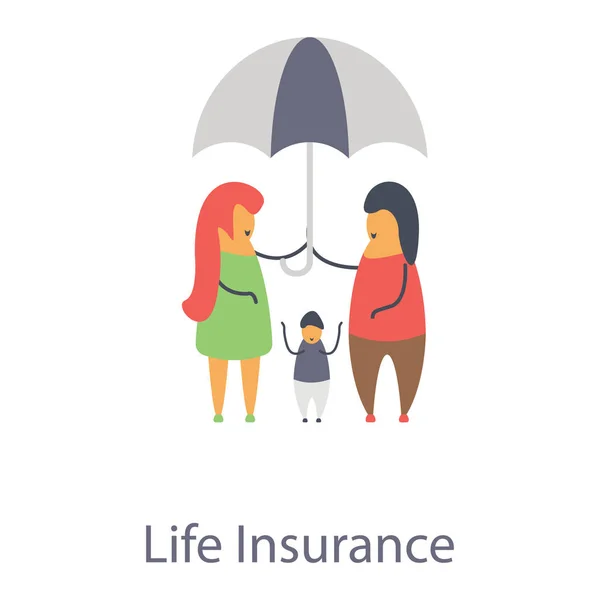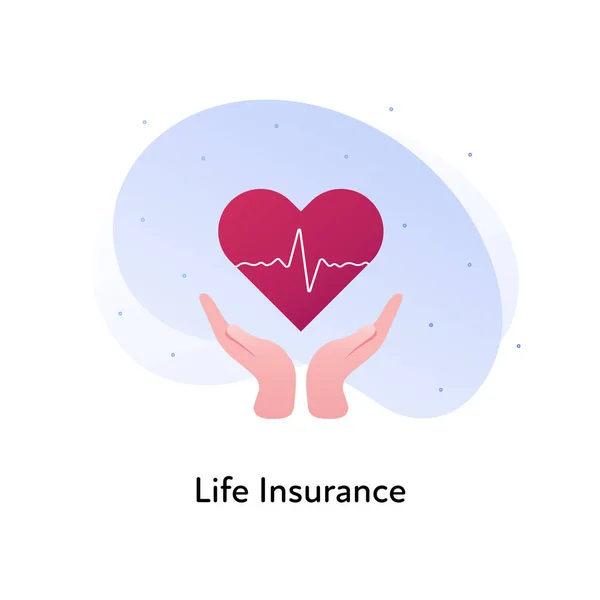Life insurance is often considered one of the most critical components of a comprehensive financial plan. Among the various types of life insurance policies available, life term insurance is frequently debated for its long-term value and investment potential. But is it really worth the investment, and how does it compare to other types of life insurance, like whole life or universal life insurance?
In this article, we’ll explore the ins and outs of life term insurance, its pros and cons, and whether it offers long-term value. We’ll break down the different factors that come into play when deciding if it’s the right option for you. Finally, we’ll address some common FAQs to help you understand if life term insurance is a smart financial move.
Key Takeaways:
- Affordability: Term life insurance offers affordable premiums, making it accessible to individuals who need coverage for a specific period.
- Simplicity: It provides a straightforward death benefit without any investment or cash value components.
- Short-Term Focus: It’s ideal for people who need coverage during certain life stages, like raising children or paying off a mortgage.
- No Long-Term Financial Growth: Unlike whole life insurance, term life does not offer cash value or investment growth.
- Renewal and Conversion: Many term life policies offer options to renew or convert to permanent insurance, though premiums increase with age.
What is Life Insurance for Life Term?
Life insurance for life term refers to a type of term life insurance where the policyholder is covered for a specified period—typically ranging from 10 to 30 years. In contrast to whole life or permanent life insurance policies, life term insurance does not offer a cash value accumulation and is purely focused on providing financial protection to your beneficiaries in case of death during the policy period.
Term Life Insurance Overview:
- Fixed Premiums: The premiums remain level during the term.
- Fixed Term: Coverage is provided for a specific number of years (e.g., 10, 20, or 30 years).
- Death Benefit: If the insured passes away during the term, the beneficiaries receive the death benefit.
- No Cash Value: Unlike whole life insurance, term life doesn’t build any cash value or offer a savings component.
Term life insurance is often seen as a straightforward, no-frills solution for those looking to secure their family’s financial future in the event of their untimely death. But is it worth investing in for the long haul? Let’s dive deeper into the various aspects of this type of coverage to see whether it’s the best fit for your needs.
Pros of Life Insurance for Life Term

Affordability
One of the primary benefits of life insurance for life term is its cost-effectiveness. Compared to permanent life insurance, term life policies are much more affordable, offering substantial coverage at a fraction of the price. This makes term life an attractive option for individuals who want to ensure their family’s financial security without incurring high premiums.
Example:
A healthy 30-year-old male can typically pay between $30 to $50 per month for a $500,000 life insurance policy with a 20-year term. In contrast, a permanent life insurance policy with the same coverage could cost several hundred dollars per month. This pricing disparity makes term life an appealing choice for those on a budget or those seeking to maximize their coverage for a lower cost.
Simplicity
Term life insurance is designed to be simple and straightforward. It offers a death benefit that pays out to the beneficiaries upon the insured’s death within the policy’s term, without the added complexity of accumulating cash value or managing investments.
For individuals who want a no-frills policy that’s easy to understand and manage, term life is an excellent option. There are no complex variables to deal with, which makes the policy relatively simple to track and ensure that you’re receiving the necessary protection without being bogged down by additional policy components.
Temporary Coverage for Specific Needs
Term life insurance is particularly ideal for individuals who need temporary coverage for specific life events or periods, such as:
- Raising children: A young family might need life insurance while their children are still dependent on them.
- Paying off debt: Many people choose term life insurance during their mortgage years to ensure the family is protected if the policyholder dies unexpectedly.
- Income replacement: If the policyholder is the primary earner, term life insurance provides financial security until children are financially independent or until the household becomes financially stable.
Example:
A parent with young children might choose a 20-year term to cover them until the children reach adulthood and are no longer financially dependent. Similarly, someone with a mortgage might purchase a 25-year term to cover the debt.
Flexibility in Duration
Term life insurance allows policyholders to select a policy term that aligns with their specific life circumstances. The most common options are 10, 20, and 30 years, but policies can be customized to suit other timeframes. This flexibility allows you to purchase coverage for the period that makes the most sense for your financial obligations.
For instance, if you’re paying off a mortgage that will take 15 years to pay off, you can purchase a 15-year term. Similarly, if you only need coverage until your children are financially independent, a 20-year term might be ideal. This flexibility ensures that you only pay for coverage for as long as you need it.
Renewal and Conversion Options
Many term life policies come with renewal and conversion options, offering further flexibility as circumstances change:
- Renewal Option: Once the term expires, some policies allow you to renew your coverage for another term, though premiums may increase significantly. This is particularly useful if your health has changed or if you’ve developed new financial responsibilities.
- Conversion Option: Some term policies allow policyholders to convert to permanent life insurance (such as whole life or universal life) without needing to undergo another medical exam. This is ideal for those who want to continue their coverage beyond the term, especially if their health deteriorates, making it difficult to qualify for new life insurance.
Cons of Life Insurance for Life Term

No Long-Term Financial Planning
Term life insurance is designed to provide temporary financial protection, but it doesn’t contribute to long-term wealth building or financial planning. It does not have a cash value component, meaning it cannot be used to build savings for retirement or to help with other financial goals. For people looking for an insurance policy that also serves as a savings or investment tool, term life insurance does not meet this need. Unlike whole life or universal life policies, which can accumulate cash value over time and be used for things like loans or retirement, term life insurance offers only a death benefit with no long-term financial advantage. Example:
If you are someone who also wants your life insurance to act as a retirement savings vehicle or a source of future wealth, a term life policy would not meet that need, as it offers no cash value accumulation or investment return.
No Cash Value
One of the biggest drawbacks of term life insurance is that it does not accumulate cash value. Unlike permanent life insurance policies, term life is purely insurance with no component that grows over time.
Premium Increases Upon Renewal
While the initial premiums for term life insurance are generally affordable, they increase significantly when you renew the policy after the term expires. As you age, the likelihood of death increases, meaning that insurers will adjust premiums accordingly.
Limited Coverage Period
Unlike permanent life insurance, which provides lifetime coverage, term life insurance only covers a set period, such as 10, 20, or 30 years. If the policyholder outlives the policy’s term, they are no longer covered unless they decide to renew, convert to a permanent policy, or purchase a new term life insurance policy. This could become problematic for individuals who still need coverage in later life but may find it difficult or expensive to purchase a new policy due to health concerns. The absence of long-term coverage might also be unsuitable for those seeking lifelong financial protection. Example:
If a 40-year-old purchases a 30-year term policy, they will be covered until they are 70. After that, if they still need coverage, they will need to renew or find another policy at a higher rate.
Is Life Insurance for Life Term Worth the Investment?
| Aspect | Details |
|---|---|
| Definition | Life insurance for life term is a type of term life insurance that provides coverage for a set period, typically ranging from 10 to 30 years, with a fixed death benefit. |
| Primary Purpose | To provide financial protection to beneficiaries in the event of the policyholder’s death during the term of the policy. |
| Cost-Effectiveness | Pros: More affordable compared to whole life or universal life insurance. Suitable for individuals with temporary needs. |
| Premiums | Pros: Typically lower than permanent life insurance policies. Fixed premiums during the term period make budgeting easier. |
| Death Benefit | Pros: Beneficiaries receive a lump sum payout if the insured dies during the term of the policy. |
| Coverage Duration | Pros: Flexible coverage duration options (10, 20, 30 years, etc.), ideal for people who need protection during specific life stages, like raising children or paying off mortgages. |
| Cash Value | Cons: Does not accumulate cash value, meaning the policyholder doesn’t receive any money back if the term expires or if the insured survives the policy period. |
| Renewal Option | Pros: Many policies offer the option to renew or convert to a permanent policy, but at higher premiums as the policyholder ages. |
| No Long-Term Wealth Building | Cons: Term life doesn’t build equity or serve as an investment tool, unlike whole life insurance that can act as both insurance and savings. |
| Flexibility | Pros: Flexible to fit specific needs; you can adjust the term length and choose the coverage amount. |
| Premium Increases Upon Renewal | Cons: Renewal premiums increase significantly as you age, making it more expensive as you get older. |
| Eligibility and Health Impact | Pros: Easier to qualify for at younger ages and with good health. Premiums are based on age, health, and lifestyle at the time of purchase. |
| Suitability for Specific Needs | Pros: Perfect for those who need coverage during certain periods of life, such as raising children or while paying off a mortgage. |
| Ideal Age Range | Best for: Young to middle-aged individuals looking for affordable coverage during their working years or until they no longer have significant financial obligations. |
| No Return on Investment | Cons: If the insured survives the policy period, they do not receive any financial return on premiums paid. |
| Tax Benefits | Pros: Death benefits are typically tax-free for the beneficiaries, offering financial relief to loved ones. |
| Simpler Than Permanent Policies | Pros: Easier to understand and manage compared to complex permanent life policies with cash value accumulation and investment components. |
| Long-Term Cost of Coverage | Cons: Renewing the policy as you age can be costly, and buying new insurance at an older age may be expensive or difficult to qualify for due to health reasons. |
| Dependents’ Protection | Pros: Provides essential protection for dependents (children, spouse) in case of the policyholder’s death, ensuring financial stability during critical years. |
Whether life insurance for life term is worth the investment ultimately depends on your personal financial goals and circumstances. Here are some scenarios where term life insurance might be the best choice:
- You need affordable, short-to-medium-term coverage: If you’re young, healthy, and looking for a cost-effective way to protect your family during the most financially demanding years (e.g., raising children, paying off a mortgage), term life insurance is an excellent choice.
- You’re focused on a specific goal: If you only need insurance for a certain period, such as while you’re working or paying off debts, term life offers affordable coverage for a defined time.
- You’re looking for a simple solution: If you’re not concerned about the investment side of life insurance and only want to ensure that your loved ones are protected financially in the event of your death, term life is a straightforward solution.
However, if you’re looking for lifelong coverage or a policy that also functions as an investment (e.g., building cash value), you might want to explore whole life insurance or universal life insurance. These policies come with higher premiums but offer the potential for accumulating cash value over time.
Also Read : What Are Online MBA Courses And How Can They Boost Your Career?
Conclusion
Life insurance for life term can be a smart investment for individuals seeking affordable, temporary coverage that ensures their loved ones are financially protected during critical life stages. It’s particularly beneficial for young families, homeowners, and people looking for straightforward protection without the complexity of cash value accumulation. However, it’s essential to understand that term life insurance is not an investment tool and does not offer long-term financial benefits such as cash value accumulation or lifelong coverage.
When deciding if life insurance for life term is worth the investment, consider your financial goals, family obligations, and long-term needs. If you’re looking for temporary coverage at an affordable price, it could be the right fit for you.
FAQs
1. How long does a term life insurance policy last?
A term life insurance policy lasts for a specific period, typically 10, 20, or 30 years. After the term ends, the policy expires, and you may need to renew or purchase new coverage.
2. Can I convert my term life insurance policy to a whole life policy?
Yes, many term life policies offer a conversion option that allows you to switch to a permanent policy without undergoing a new medical exam. However, this option is typically available for a limited time.
3. Is term life insurance refundable?
No, term life insurance is not refundable. If you outlive the policy, you do not get any of the premiums back, as there is no cash value associated with term life policies.
4. Can I increase my coverage during the term of my policy?
Some term life policies allow you to increase coverage during the term through a guaranteed insurability rider, but this usually comes at an additional cost.
5. Does term life insurance cover critical illness or disability?
No, standard term life insurance only covers death. If you want coverage for critical illness or disability, you’ll need to purchase additional riders or separate policies.
6. How much life term insurance coverage should I get?
Coverage needs vary based on factors like income, dependents, debts, and financial goals. A common guideline is to have coverage equal to 10-15 times your annual income.
7. Can I renew my term life insurance policy after it expires?
Many term policies offer renewal options, but premiums will typically be higher due to your age at the time of renewal. Some policies allow renewal without a medical exam, though the premium will still increase.


